The purpose of this study is to assess the performance and economic profitability of the use of Sanbio EPSOMIT in the wheat variety ´Monastir´ and to study its effects on the development and protection of plants against fungal diseases and biotic and abiotic stress and on wheat production and quality.
This project is being carried out within the framework of the program for the technological and economic development of cereals in Tunisia and the collaboration between COCEBLE COOPERATIVE CENTRALE DU BLE (Tunisia), SANBOS GmbH (Germany) and SGDAI Société Générale de Développement Agricole et Industriel (Tunisia).
1. Materials
Location: City of Béjà – Governorate of Béjà, Tunisia
Farmer: Kamel Bedwihesch
Annual rainfall: 600 mm
Product: Sanbio EPSOMIT, manufactured by SANBOS GmbH, Germany
Table 1. Product presentation of Sanbio EPSOMIT
| Product name | Composition | Description | Application |
| Sanbio EPSOMIT | MgO + SO3 (18.2 + 35) Magnesium sulphate heptahydrate, activated by SANBIO Biocatalytical Stimulation Technology | Fertilizer and biological activator (certified in France, Germany, EC, USA)Stimulation of plant growth and immunityBetter protection against fungal diseases and biotic and abiotic stressBetter control of factors favorable to plant growthBetter germination and growth of vegetation and development of roots and shootsBetter mobilization and assimilation of nutrientsEarly flowering and maturationIncreased production and improved quality | Dosage: 1 kg / ha in 200-500 l of water No. of application: 1-2 Mode of application: Foliar spray Stage of application: 3-5 leaf stage |
2. Methods and results
Table 2. Methods and results
| Data | Control (untreated) | Lot 1 (Epsomit 1x) | Lot 2 (Epsomit 2x) |
| Durum wheat variety | Monastir | Monastir | Monastir |
| Area | 1 ha | 1 ha | 1 ha |
| Density | 200 kg | 200 kg | 200 kg |
| Date de seeding | 22/11/2017 | 22/11/2017 | 22/11/2017 |
| Soil preparation | 3 ploughing | 3 ploughing | 3 ploughing |
| Fertilizer | 150 kg DAP | 150 kg DAP | 150 kg DAP |
| Ammonitrate | 600 kg | 600 kg | 600 kg |
| Herbicides | 1 chemical | 1 chemical | 1 chemical |
| Fungicide treatment | 2 | 1 | 0 |
| Stage of application of Sanbio Epsomit | Ear emergence | Ear emergence | Ear emergence |
| Date of application of Sanbio EPSOMIT | – | 15/03/2018 | 15/032018 + 31/03/2018 |
| Dosage of Sanbio EPSOMIT | – | 1 kg / ha | 2x 1 kg / ha |
| Mode of application | – | Foliar spray | Foliar spray |
| Average annual rainfall | 600mm | 600mm | 600mm |
| Date of harvest | 20/06/2018 | 20/06/2018 | 20/06/2018 |
| Yield q/ha) | 48.3 | 52.8 | 56.1 |
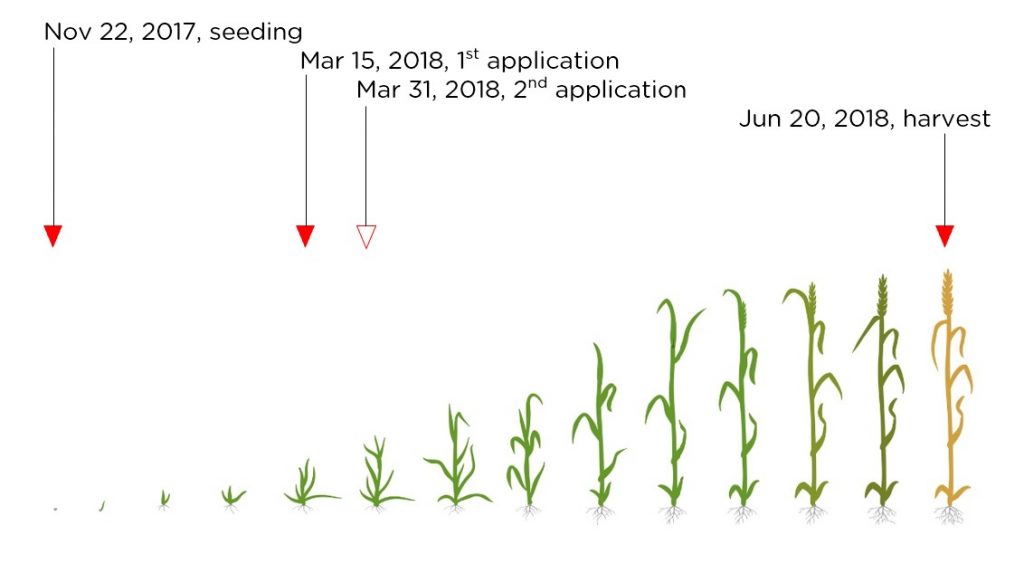
Figure 1. Timeline of season
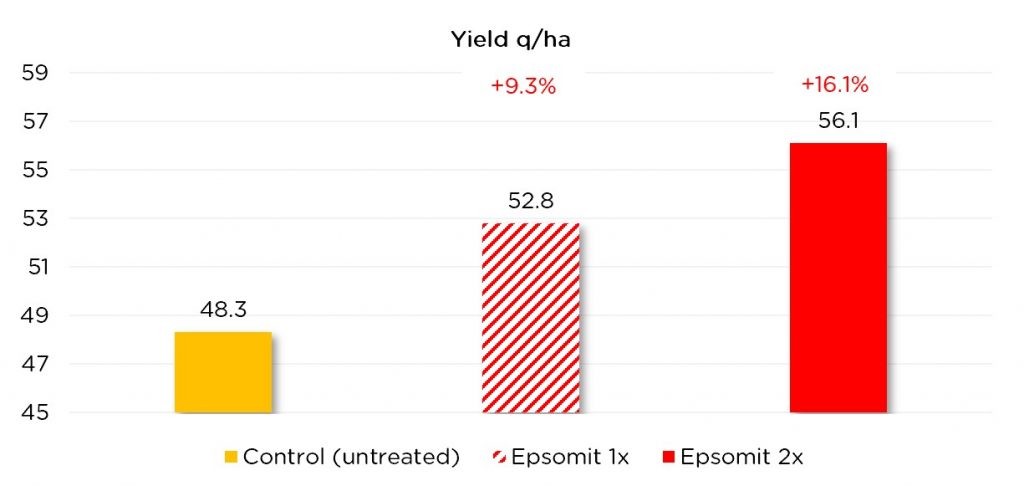
Figure 2. Yield [q/ha]
3. Fungicide application
The control plot was treated twice with fungicides for protection against cryprogamous diseases (Fusariose, Yellow Rust, Brown Rust, Rihzoctone, Septoria, Oidium, …).
Plot 1 was treated with fungicides only one time.
Plot 2 was not treated with fungicides.
On all plots no disease incidence was observed throughout the complete growing season.
4. Conclusion
Sanbio Epsomit has positive effects on plant defense and production. After the first few days of Sanbio Epsomit it was noticed a good development of plants, good leaf vegetation and vigor of the treated plots compared to the control plot.
After a single application of 1 kg of Sanbio Epsomit in the plot of Lot 1 the production was increased by 450 kg/ha. In the plot 2 was made two treatments of 1 kg/ha and increased the production by 780 kg/ha compared to the untreated control lot. The quality of the wheat at the plots treated by Sanbio EPSOMIT is better than the quality of the control plot.
The plot 2 was not treated with fungicide pesticides. Thanks to two preventive treatments by Sanbio EPSOMIT the plants were protected against cryprogamous diseases (Fusariose, Yellow Rust, Brown Rust, Rihzoctone, Septoria, Oidium, …). There was no breakout of plant diseases observed. Regardless of the number of Sanbio EPSOMIT applications, this product is very efficient and technically and economically viable.
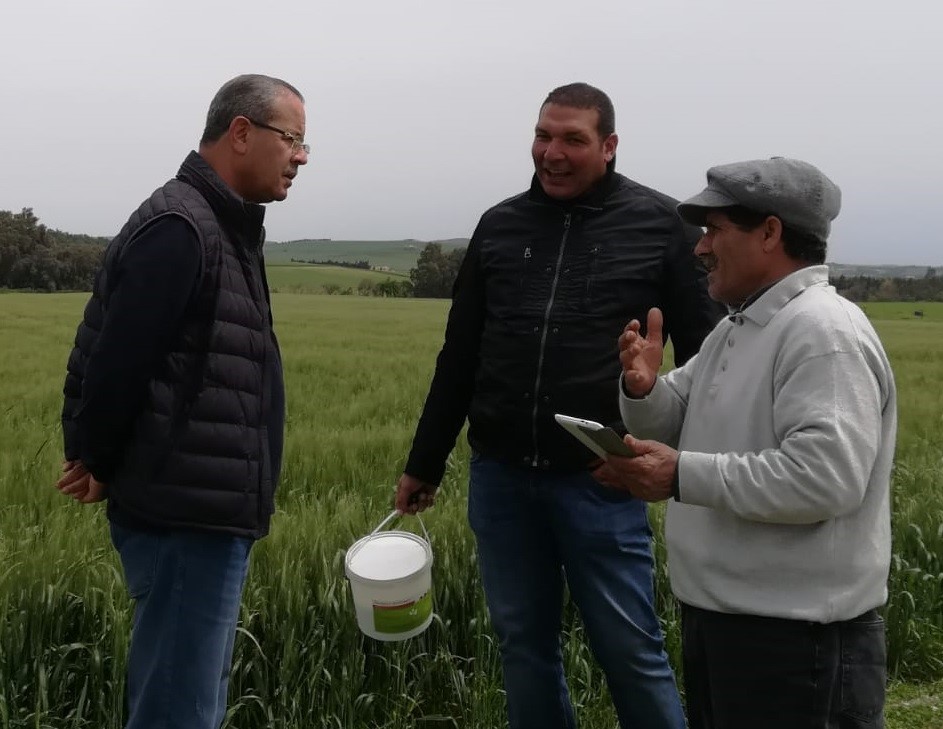
Picture 1. Consultation at site
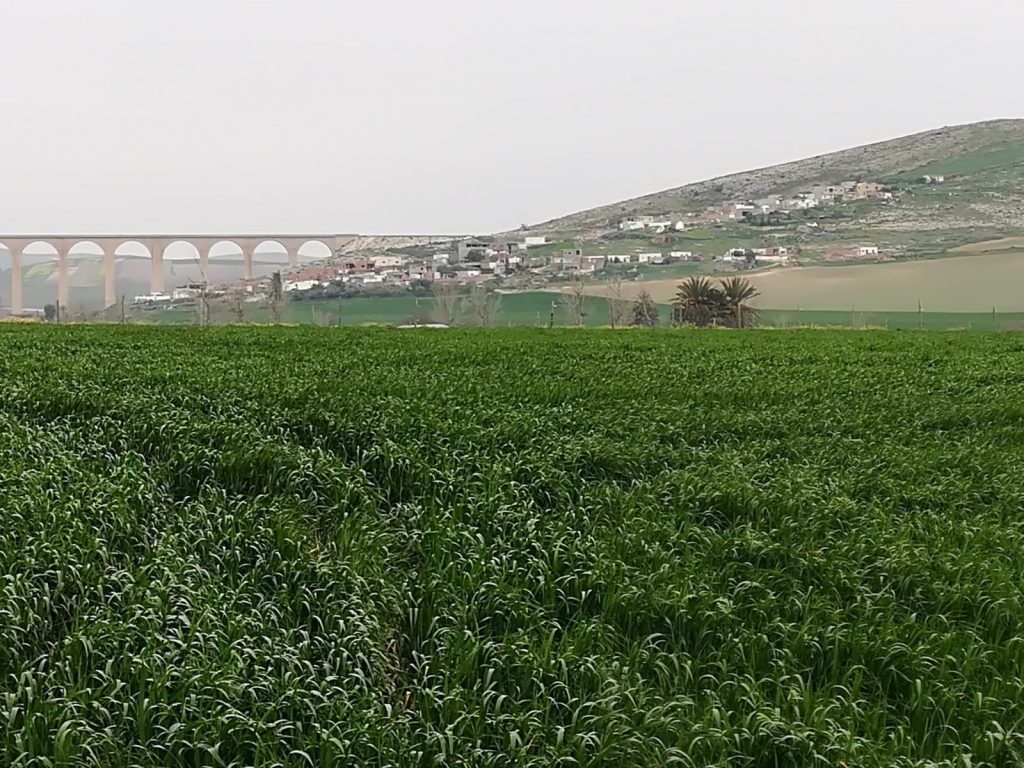
Picture 2. Treated plot 1 without disease incidence
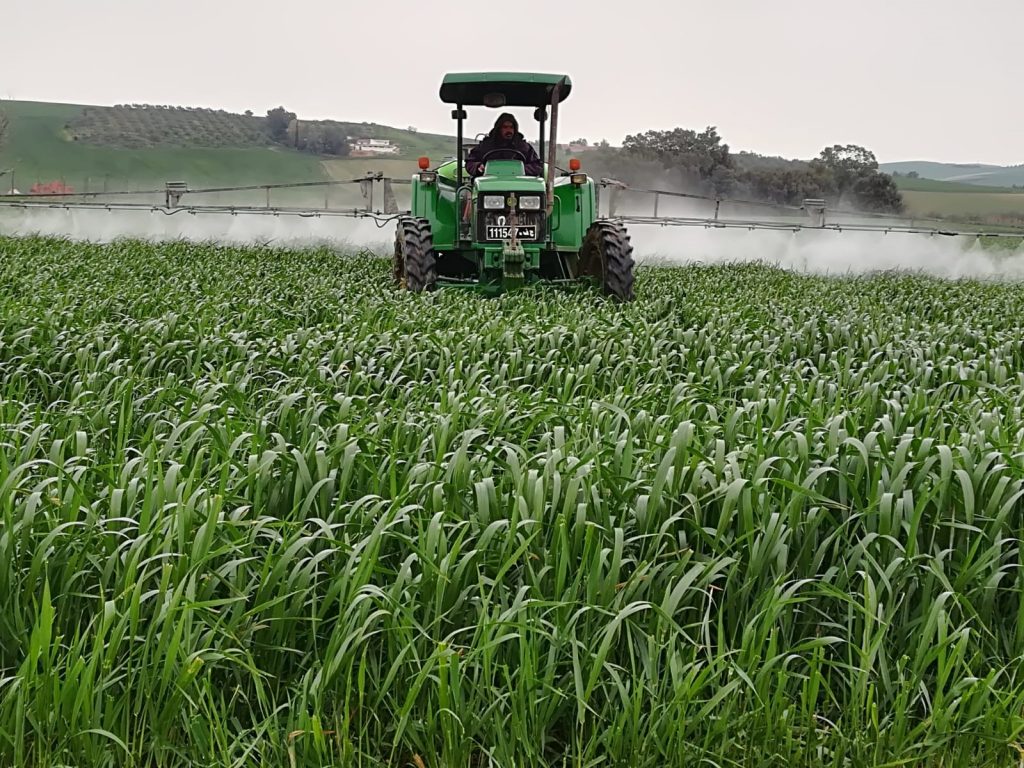
Picture 3. Second application of Sanbio EPSOMIT at plot 2
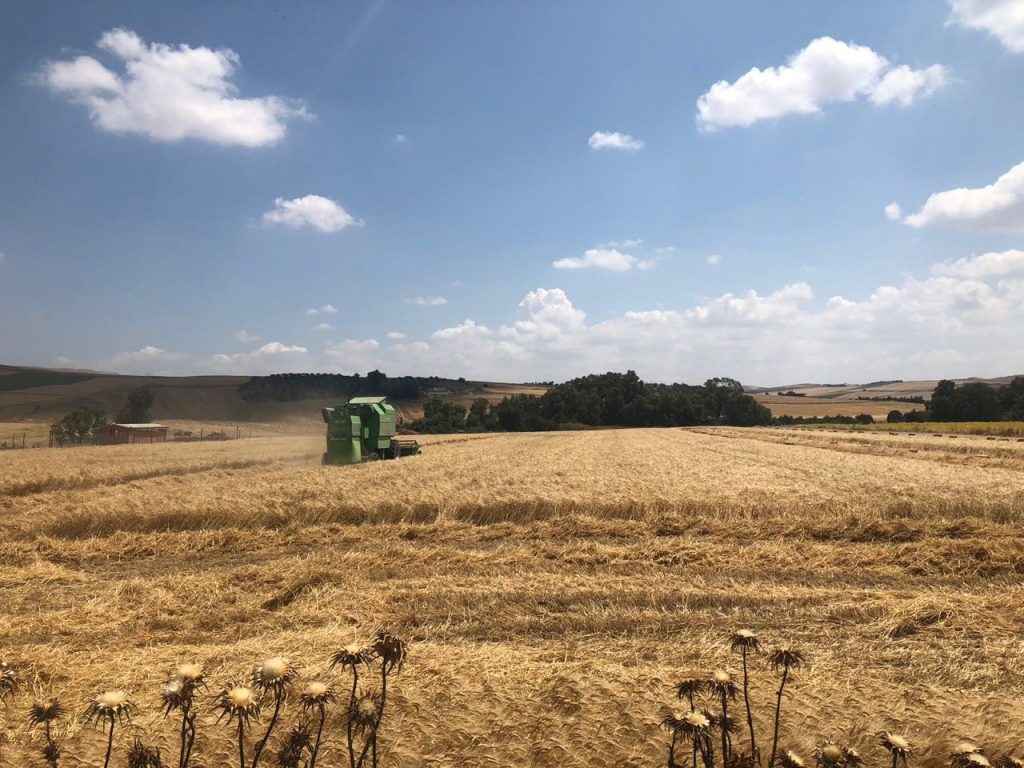
Picture 4. Harvesting